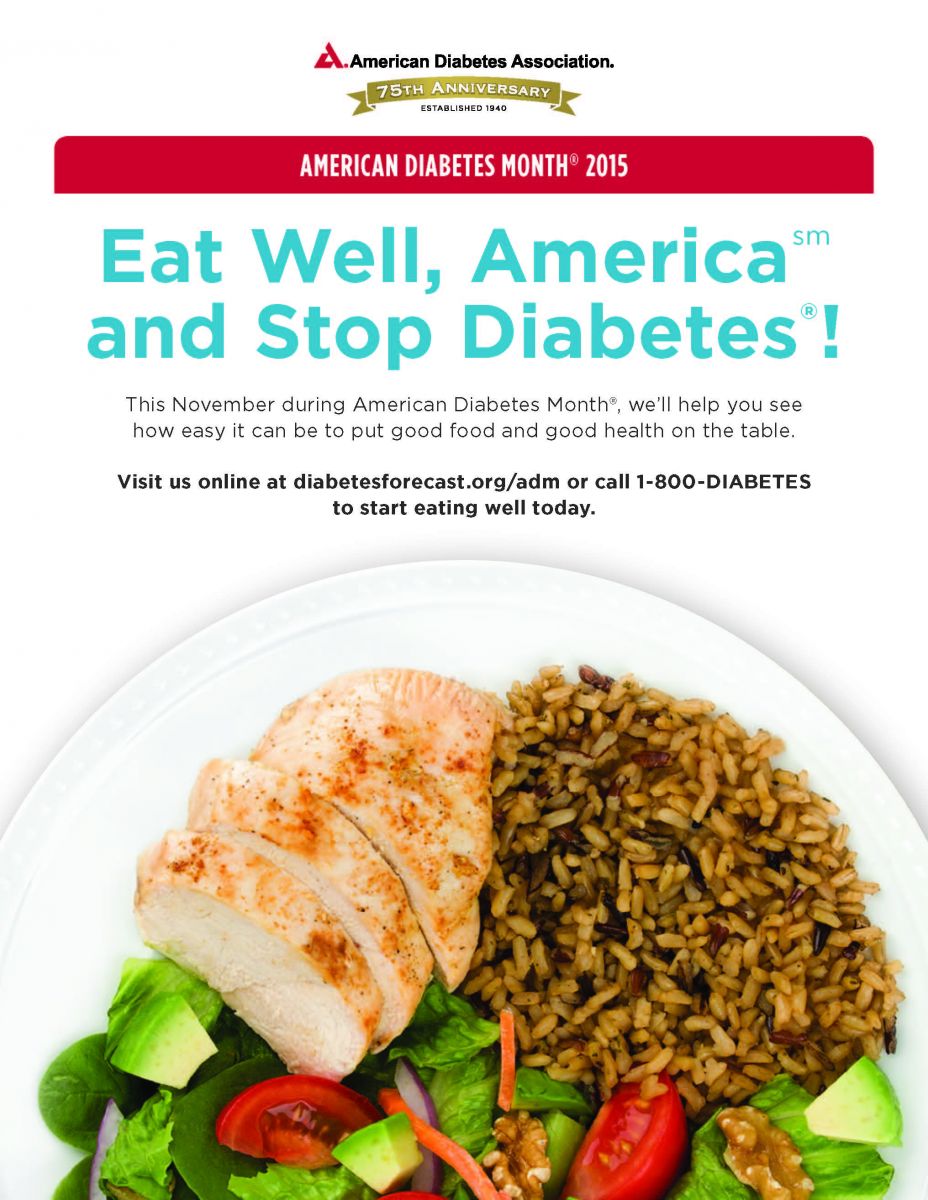November is American Diabetes Month and healthcare professionals around the country will be raising awareness of type 2 diabetes and teaching people how it can be prevented through healthy lifestyle and eating habits.
Diabetes causes blood glucose (sugar) levels to rise higher than normal, and in years past it was recommended that people diagnosed with the disease be put on a diabetic diet to avoid eating carbohydrates, especially sugary foods such as cakes and cookies as well as starchy foods such as potatoes and peas.
Fast forward to 2015: we now know eating a well-balanced diet, being mindful of how much we’re actually eating, and being physically active on a daily basis is important to our overall health, whether or not we’re diagnosed with diabetes.
A well-balanced diet of minimally processed whole foods includes carbohydrates, a necessary nutrient that helps fuel our brain and bodies. Research shows that indeed, most people with diabetes can eat carbs including the occasional sweet because it’s the type and the amount of carbs that are important for managing blood glucose levels.
Did you know that whole grains, fruits, vegetables, low-fat dairy, beans and legumes are healthy carbs Although people with diabetes need to control the amount of carbs theyr’e eating on a daily basis, these good carbs provide vitamins, minerals and fiber that are essential to a healthy diet.
According the American Diabetes Association, the amount of carbohydrate that someone should eat is dependent on several factors including level of daily physical activity and medication, but generally recommend starting with 45-60 grams of carbs at a meal. They also suggest combining a lean protein, such as chicken or turkey, and a healthy fat, such as olive oil, with your carbohydrate to balance your meal. It is essential to talk with your healthcare professional, diabetes educator or registered dietitian about a food plan that is right for you.
So the good news is we all can eat carbs, but they should be nutrient dense and in appropriate portion sizes. By avoiding highly processed, refined foods and instead choosing whole, minimally processed ones eaten mindfully, we all can be on the road to better health.
This is our second of two articles on diabetes in support of National Diabetes Month in November. If you missed it, you can still read our Eating for Better Health: Hope Warshaw, RD, CDE, Shares Tips for Managing Diabetes.
For additional information, check out the ONE toolkit, Diabetes along with sponsored kits from belVita Breakfast Biscuits and the North Carolina Sweet Potato Commission.
Deborah, Oldways Nutrition Exchange Program Manager








Leave a comment